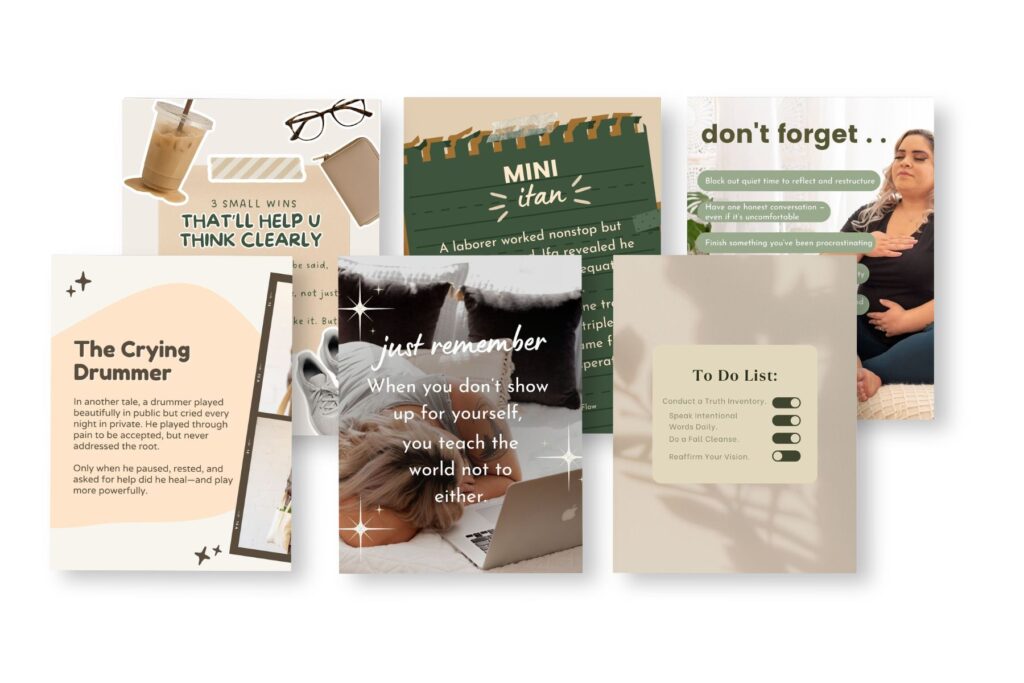IFA’S “IWE-IWA” (BOOK OF CHARACTER) – JOURNALIG FOR SELF-AWARENESS

Why Iwe-Iwa + Journaling?
In Ifá, Ìwà (character) is the backbone of destiny. Iwe-Iwa—the “book of character”—isn’t a literal text; it’s the personal record you create through choices, habits, and honest reflection. Journaling turns that record into a conscious practice: you observe, name, and refine your character in real time.
Plain talk: if you don’t check yourself daily, life will do it for you—usually at a higher cost.
But, before we do a deep dive, make sure you grab your access to my free weekly sneak peak of The Weekly Flow subscription to stay consistent and to grab new strategies then come back to finish this guide!

The Iwe-Iwa Journaling Framework (4 Steps)
1. Observe (What happened?)
Capture facts without spin. Who, what, when, where.
2. Interpret (What’s the character lesson?)
What aspect of Ìwà showed up—patience, humility, courage, discipline, truthfulness?
3. Intend (What will I do next time?)
Set one concrete behavior you can repeat.
4. Act (Do it, track it, review it)
Keep receipts: dates, repetitions, results.
Mantra: “Character first, everything else follows.”
The Five Core Lenses of Ìwà
Ìwà Pẹ̀lẹ́ (Gentle, balanced character) – restraint, grace under pressure
Ọ̀títọ́ (Truthfulness) – honest speech, honest numbers, honest motives
Sùúrù (Patience) – pacing, timing, delayed gratification
Ìbá (Respect/Alignment) – honoring boundaries, elders, agreements
Ìbànújẹ́ → Ìmúlára (From regret to repair) – owning errors and making amends
Daily Page Template
(Copy/Paste for your journal)
Date / Time:
Mood / Energy (1–5):
Key Event (facts only, 2–3 lines):
Which lens applies? (pick 1–2):
Trigger I noticed:
Character I practiced (or missed):
One intention for tomorrow (behavior + where + when):
Accountability receipt (did I do it?):
Gratitude (1 line):
Daily Prompts That Keep You Honest
Self-Mastery
- Where did my discipline hold today? Where did it leak?
- What micro-habit (2 minutes or less) proves I’m serious about change?
Relationships
- Did I speak truth kindly? What sentence would have been kinder?
- What boundary did I enforce—or avoid—and why?
Work & Money
- What number (income, expense, mileage, time) did I verify today?
- Where did I trade long-term gain for short-term comfort?
Integrity & Repair
- What did I promise? Did I deliver? If not, what repair step will I complete in 24 hours?
Weekly Flow (Simple & Doable)
- Sunday – Set Direction: Choose one Ìwà focus. Define one proof action.
- Mon–Wed – Reps: Log one micro-win per day tied to that action.
- Thursday – Wisdom Check-In: Review patterns. Adjust.
- Friday – Accountability: Did you keep agreements? Note one repair.
- Saturday – Harvest: What improved (even slightly) because of character?
Sample Journal Entries
Scenario: A coworker criticizes your idea in a meeting.
- Observe: “9:40am team call. My proposal was challenged. Heart rate spiked; I interrupted twice.”
- Interpret (Lens): Ìwà Pẹ̀lẹ́ + Sùúrù. Missed restraint.
- Intend: “In tomorrow’s stand-up, ask 1 clarifying question before defending.”
- Act/Receipt: ✅ “Asked, ‘What would make this workable?’ Got specific feedback.”
Scenario: Budget slips—late fee hits.
- Observe: “$25 late fee on utility bill; I ignored last Friday’s reminder.”
- Interpret (Lens): Ọ̀títọ́ + Ìbá (respect agreements).
- Intend: “Automate utilities today; calendar review every payday.”
- Act/Receipt: ✅ Autopay on, calendar block set for 7pm on paydays.
Quick Self-Audit Questions (End of Month)
- Which lens of Ìwà showed up most? Least?
- What trigger appears before 80% of slip-ups?
- What single rule would have prevented most problems?
- Where did integrity save me time or money?
How to Start Today (5 Minutes)
- Print or copy the Daily Page Template.
- Name one lens of Ìwà for the week.
- Choose one behavior that proves it.
- Do it once before noon.
- Log the receipt. Done.
FAQ
What is Iwe-Iwa?
It’s the “book of character”—your lived record. Journaling makes it intentional.
How is this different from regular journaling?
Each entry ties to a specific character lens and ends with a measurable action.
Do I need to know all the Odù?
No. Start with the lenses of Ìwà. Add Odù later if helpful.
How long should entries be?
3–8 bullet lines. Fast, honest, repeatable.
Explore more Ifa-inspired mindset tools in the Mindset & Clarity (Èrò) Library.
Ready for practical, weekly guidance?
Join The Weekly Flow — your Ifa-inspired roadmap to stay centered, structured, and consistent.
